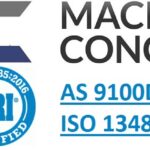CNC casting combines CNC machining and the casting process to enhance manufacturing efficiency and precision. While casting involves pouring molten material into molds to create complex shapes, CNC machining uses computer-controlled tools to refine features, achieve tight tolerances, and enhance surface finishes. This integration allows manufacturers to produce intricate components efficiently, leveraging casting for bulk production and CNC machining for precision detailing. Widely used in industries like automotive and aerospace, CNC casting ensures high-quality parts by combining the strengths of both formative and subtractive manufacturing techniques.
How to choose best contract manufacturers for CNC casting?
To choose the best CNC casting contract manufacturer, follow these steps:
- Define Requirements – Specify material, tolerances, and production volume.
- Find Reputable Manufacturers – Use Find My Manufacturer, ThomasNet, Xometry, MFG.com, or check industry associations (NADCA).
- Verify Expertise & Certifications – Look for ISO 9001, AS9100, IATF 16949, or NADCA certification.
- Assess Capabilities – Ensure they offer die casting, sand casting, or investment casting with CNC machining.
- Compare Quotes – Evaluate pricing, lead times, and hidden costs.
- Check Quality Control – Confirm they use CMM, X-ray, or ultrasonic testing and request prototypes.
- Review Reputation & Support – Look for customer reviews, testimonials, and strong communication.
Following these steps ensures you partner with a reliable, high-quality CNC casting manufacturer. Let me know if you need recommendations!







